Have you noticed how Google feels different lately? You’re not imagining it.
Tools like ChatGPT and Google’s AI-generated overviews are changing how people discover businesses.
In fact, AI Overviews now appear in roughly 12.8% of all searches by volume, and 9.5% of queries on desktop show them (Source: Ahrefs) meaning they’re far from niche anymore.
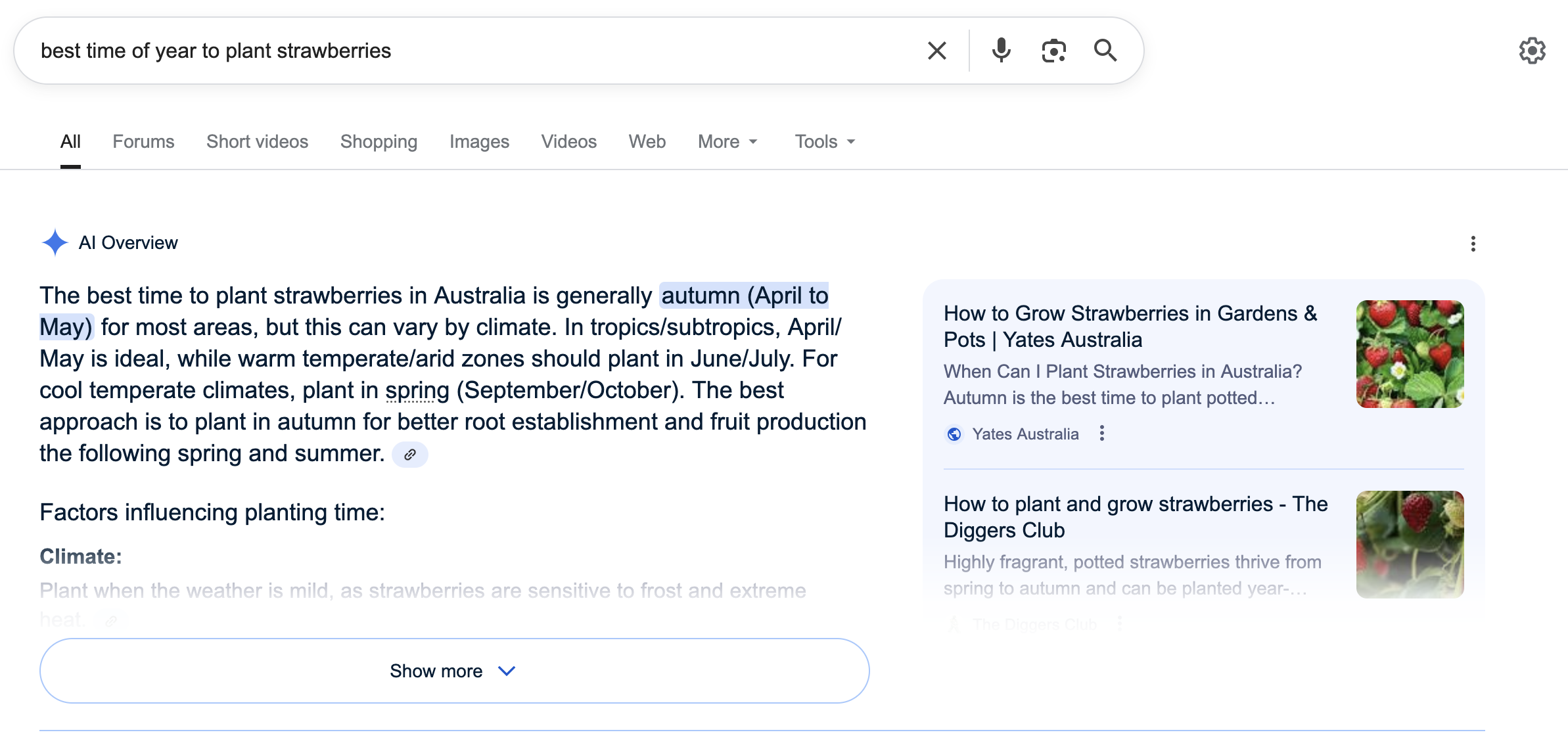
Increasingly, customers are getting answers directly from AI, often without needing to actually click through to an actual website.
That shift means your content needs to do more than just rank but also needs to make sense to both machines and humans.
If you're someone that develops content for a website, increased importance is now placed on developing content that is easy to summarise, rich in expertise, but also genuinely helpful.
For small businesses, particularly across Hobart, that presents a huge opportunity.
This shift or revision shouldn't be about trying to game the system, but instead focussing on being clear, useful, and confident in what you offer.
We wanted to take some time to break down some of the factors that can help your website rank when it comes to AI search tools, including four key areas to focus on:
Google and AI tools are putting more and more weight on websites that clearly demonstrate expertise - and this is where topical authority, or being the number one source on your relevant topic, comes in.
Topical authority means becoming the site people (and AI tools) trust when they want helpful, specific answers.
It’s about showing real expertise through content that matches real search intent, not just saying you’re the best.
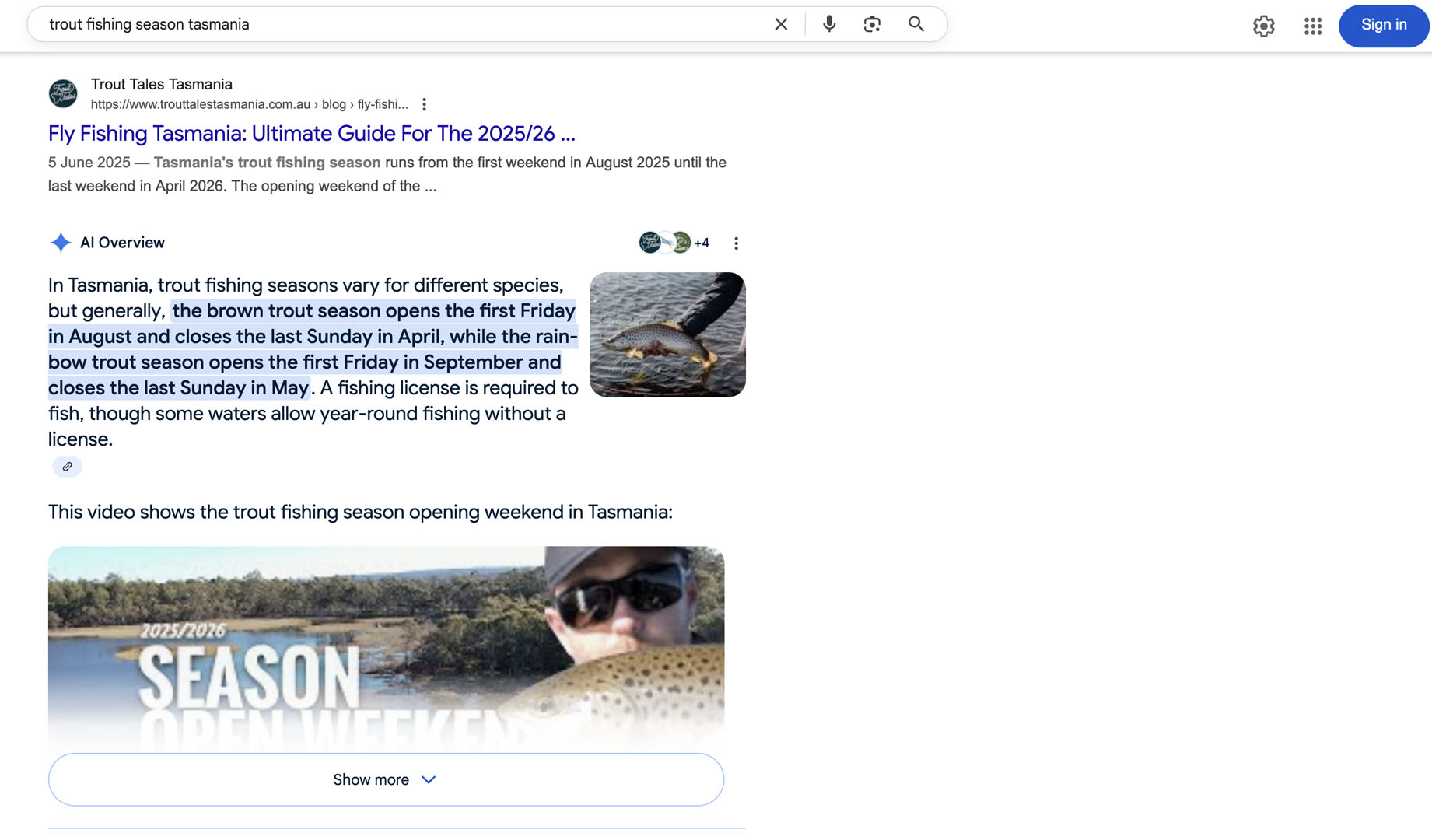
A handy tip to think about or focus on this is instead of thinking in terms of what you want to say, think about what people want to know.
You can build this with:
For example, let's use a florist in Battery Point, just out of Hobart. While showcasing products is the core business, you might write about seasonal flower availability, wedding bouquet trends, or how to care for native plants.
That content may not lead to a sale immediately, but it builds trust and visibility.
It also helps you show up for more specific searches like “what flowers bloom in Hobart in April,” not just “florist Hobart.”
Dominic, owner of Hobart digital marketing agency Wakeford Digital, shares some insights, "the goal isn’t just to get clicks, but it's also about being a valuable online resource for your industry - so that ultimately, you're the one they remember when it comes time to buy or book.”
"This focus not only ties in with the human element of engaging your for your products or services, but also for machines who dictate what - and who -appear when it comes to AI and search."
Dom’s Tip:
A simple exercise you can do is record yourself explaining something to a customer, then turn that into a blog post.
Platforms like Descript can also help automate this process by transcribing your recording quickly into text too.
Overall however, this natural explanation is exactly the kind of content that builds authority.

AI tools like ChatGPT are designed to respond to questions.
If your website clearly answers those same types of queries, it has a better shot at being included in AI-generated summaries.
But it's important to note that there’s a difference between a generic FAQ and true intent-matching answers.
Great content mirrors the actual questions customers ask you - questions that show intent, concerns, or decision-making needs.
This might include:
The more specific the question, the more relevant and useful your answer becomes, both for the user and the algorithm.
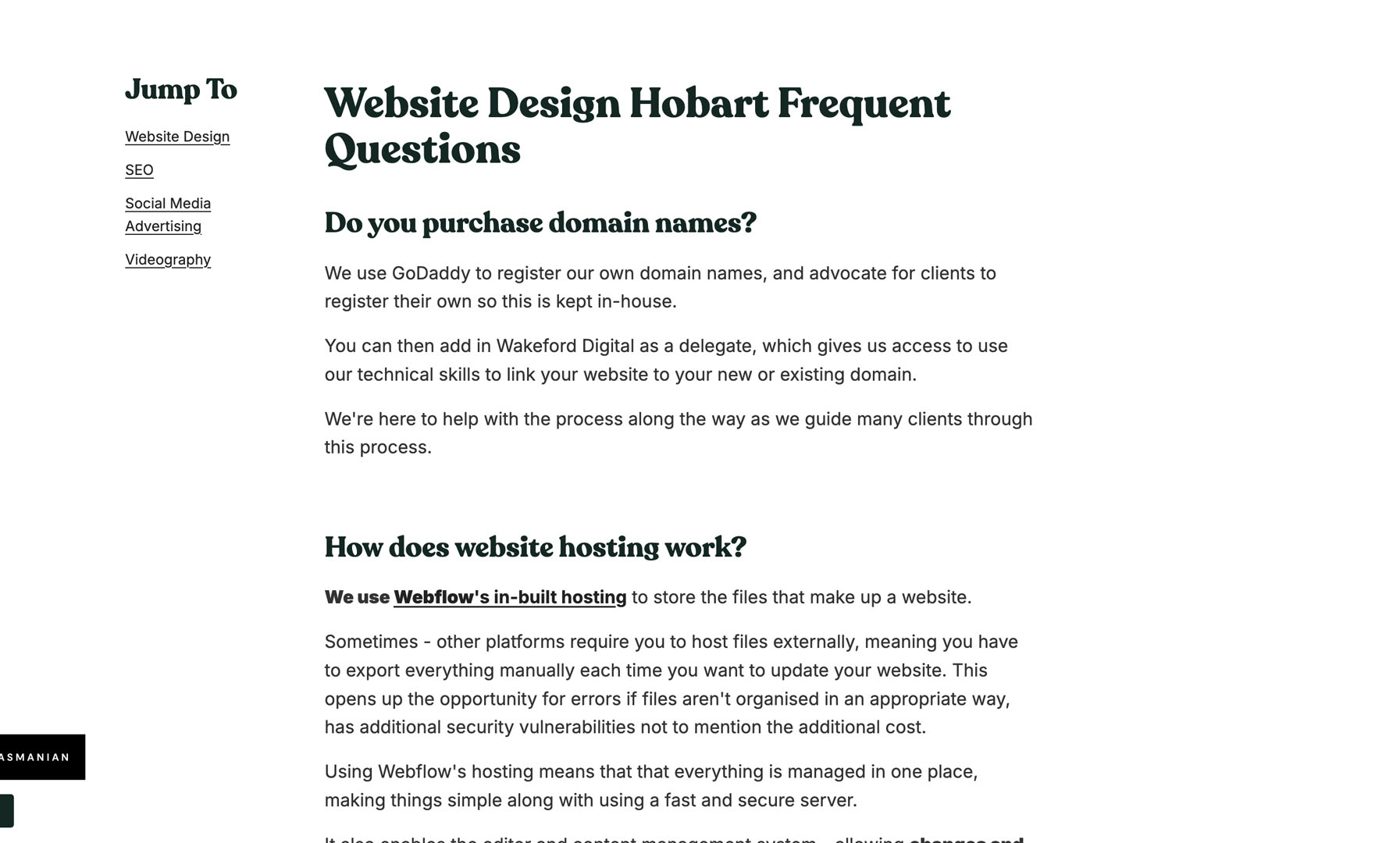
You don’t need to create full landing pages for every query; for example adding detailed FAQs to core service pages or short blog entries can work just as well.
Dominic continues, “I think it's also important to note that you also don’t have to guess what people are searching for, you can listen to your own customers, why they've engaged you, what their painpoints are etc - that’s what AI is doing too.”
Dom’s Tip:
Look through your last five email threads or phone enquiries and write a 100-word answer to each question. You’ve now got five helpful posts or FAQ items that boost your site’s usefulness.
There's no denying that AI tools are powerful, but something that can be easy to overlook is that they can’t replicate trust.
That’s where you come in.
By making your site sound and feel human, you not only build credibility with customers, you also help AI tools recognise that your business is a real, trusted local operator.
Ways to make your content look and sound more human includes things like:
It might sound small, but even adding a line like “we recently completed this in Kingston” tells Google and AI that you’re an active business in a real place.
That’s a powerful signal for local search.
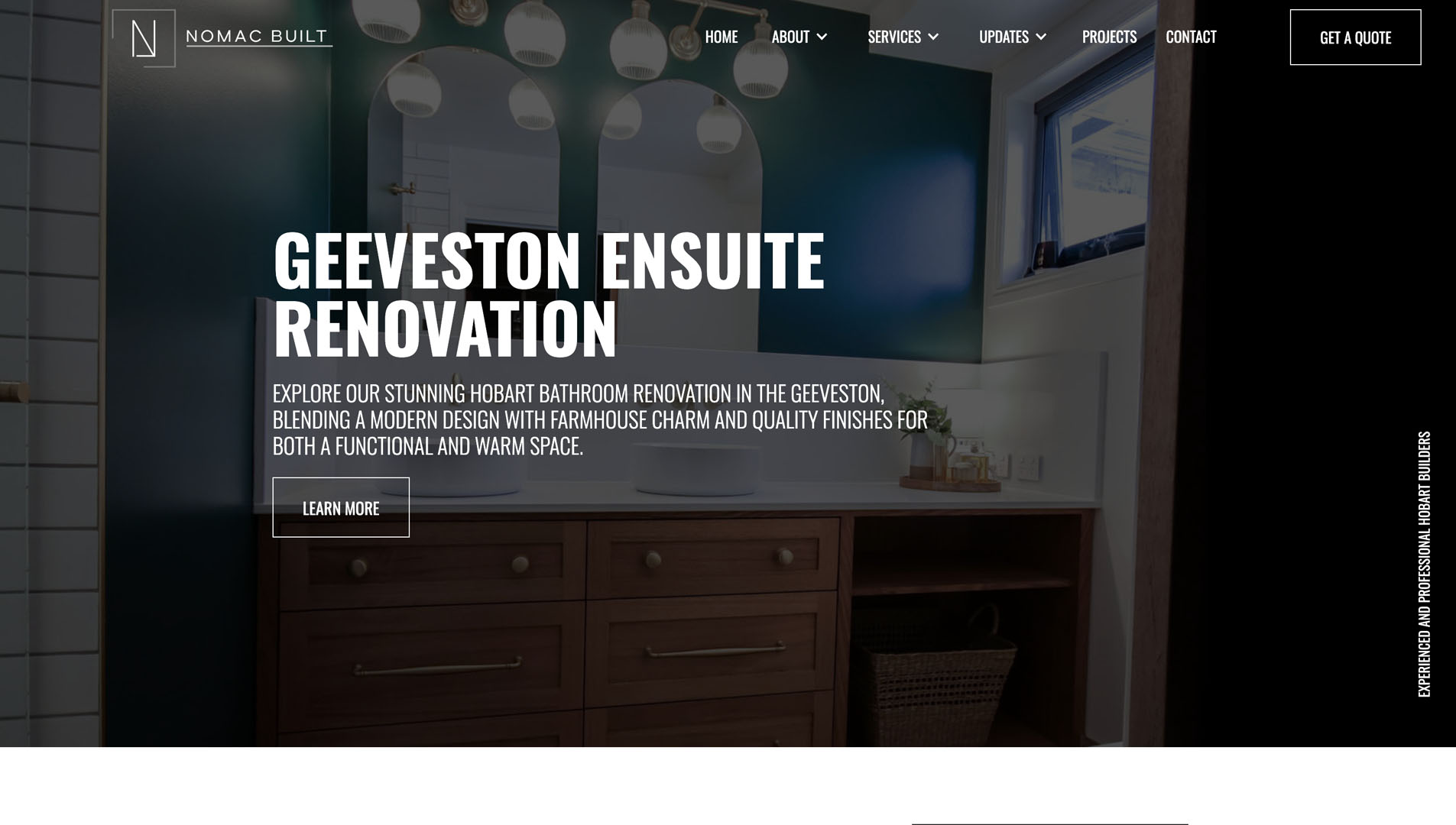
"No more so than in a place like Hobart and Tasmania, people want to work with someone they can trust, not someone who sounds like a template or is clearly trying to dupe them,” says Dominic.
Dom’s Tip:
Don’t be afraid to sound like yourself, in your writing, in your videos, in your content. A real, relaxed tone connects better with customers - and gives AI something to latch onto when surfacing local results.
While the tools have changed, the foundations haven’t.
For your content to be understood, by both search engines and customers, you still need to cover the technical and structural basics.
Especially when it comes to businesses looking to leverage SEO in Hobart, this means:
Think of this as your site’s scaffolding. Without it, even the best content won’t perform as well as it could.
"More so than ever it can be easy to overlook the basics when chasing trends or new tools, but those basics are what make everything else work and act as the platform for more advanced ideas or platforms to extend upon,” says Dom.
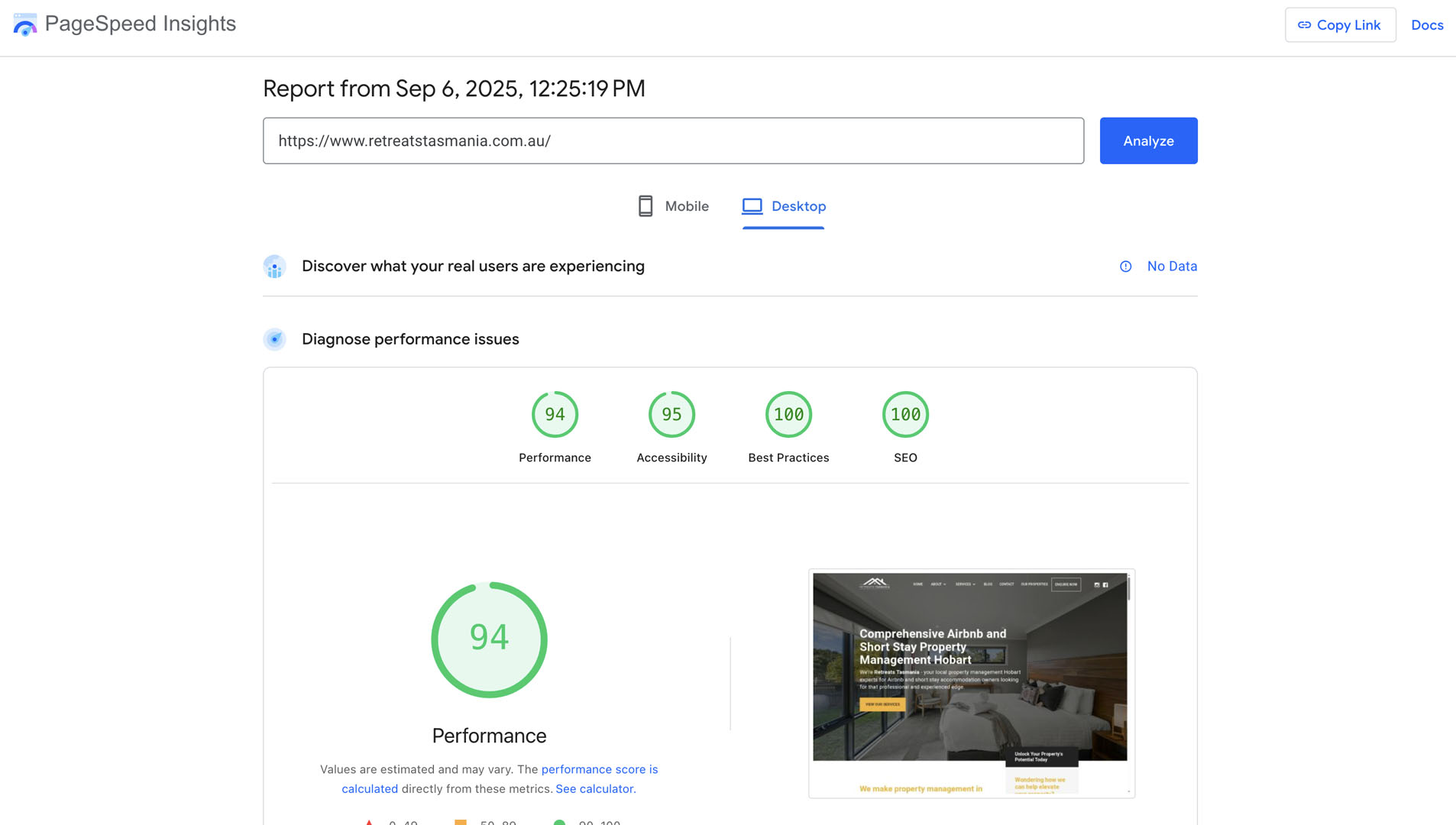
Dom’s Tip:
Once a month, Google your own business on your phone. What shows up?
Does your website load quickly? Are your business hours right? Fix what’s missing—before your customers notice.
As AI overviews become more common in search, there are a few other key signals that seem to influence whether or not your content gets included.
Here’s what tends to matter most for other AI visibility elements:
In short, SEO has gone omnichannel (clients will have no doubt heard us using this term more and more in 2025).
It’s not just about what’s on your site - it’s about who’s talking about you, where, and why.
Dom’s Tip:
Search your business name on Reddit, YouTube, or Google Maps. If nothing shows up, you’ve got an opportunity to build more visibility across platforms your customers are already using.
The way people discover and evaluate businesses has now changed - and it continues to evolve fast.
Instead of being something to fear, this shift to AI-powered search is a huge opportunity; particularly for business owners willing to embrace the challenge.
This is because, thus far at least, the solution isn’t tricks or hacks.
It’s being genuinely helpful.
It’s showing your expertise. It’s sounding like a real person in a real place. And it’s making sure your digital footprint extends beyond your homepage.
By focusing on topical authority, clear answers, local trust, and solid SEO foundations - you’re building a business that’s not just ready for AI search, but likely to stand out in it.
Thanks for reading.